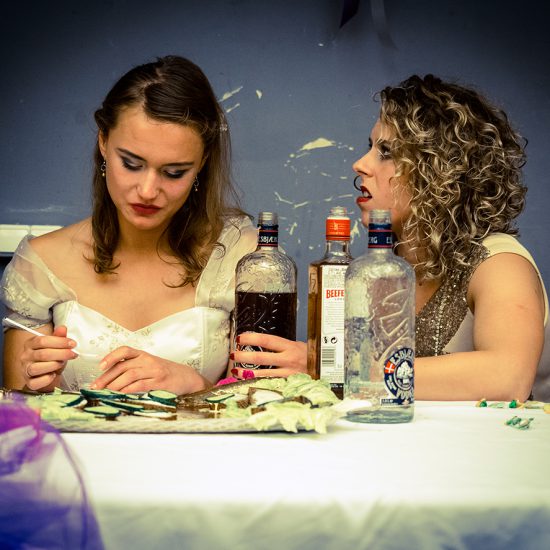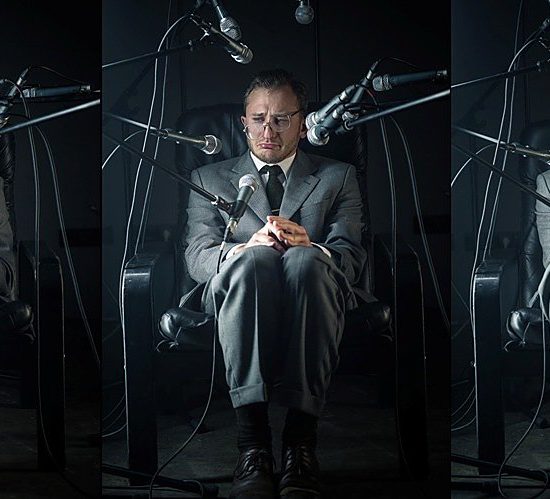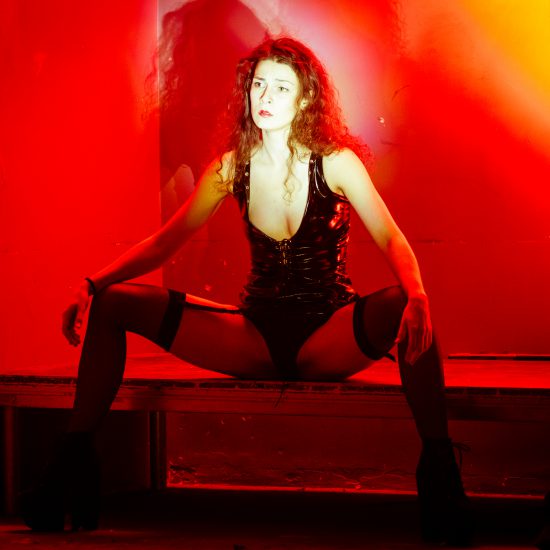Tragedy. Catharsis. Mask
Oedipus’ awareness is designed by director to Iocasta. In the first act she listens to the story of Oedipus stoically and without any traces of discomfort; only during his conversation with Messenger she brakes down: just before she had the drop of hope, but while she is moving step by step on the curbs of sandbox she gets frozen of a horror and only her hollow cry may respond to the her husband’s and son’s tragedy that occurs right here, in her sight. It seems that Iocasta, performed by Jurate Onaityte, is suffering a dreadful recognition, which instantly changes all her life and the lives of her offspring; already her astonishing body signifies decision to suicide. These moments lasts centuries for Oedipus. Now he – who has lost his former arrogance – is brought right into depths of the knowledge and the pain. The director debunks and at the same time crowns Oedipus, his passion of knowledge, his divine human majesty and possibility for him to see the daylight. Right here resounded in the performance motives of guilt, responsibility and sacrifice finally combines and opens tragedy of the human self-cognition. Not by accident chorus that recently hided under masks now takes them off and moves towards swing where Oedipus is stiffen as if he was under spearhead of the Damocles’ sword and glorifies him and says good-bye. A figure of the chorus slowly girdles the swing and for the first time draws up for cyclic dithyrambs. The statics of Oedipus that evokes almost the state of coma is finally destroyed: he so much sways himself in the swing that his flying distorted by pain face turns into tragic mask. Oedipus’ purification that started as silent confession and finished as final insight is fulfilled. Through it the justification of the character is accomplished as well.
Now director takes the risk of introducing the eccentric narration presented by Servant on the later Oedipus deeds – how he discovered hanged Iocasta, haw he mourns over and how finally he pricks out his eyes. Oedipus himself is fenced off it; the narration is directed to the spectators: it affords pleasure precisely at that moment and it’s the only possible situation then such horrific story may set spectators laughing. Aristotelian pleasure experienced through catharsis appears at the right time in the right moment; it is laugh through tears and discharge of high voltage. If very recent scene has touched the spectators at least for a blink then right now comes the moment for our purification.
For that only climactic scene which was the longest mise en scčne and the most complicated acting the “Oedipus Rex” was already fully worth to stage. In the performance you also may experience so much of Korsunovas’ responsibility or even penance of all faults as in any other his show. Solitude and unbearable silent sorrow was so intimate and so expressive like in any other director’s performance. Right like in the genuine Antique tragedy there, according to Kierkegaard, sorrow is major than pain.



